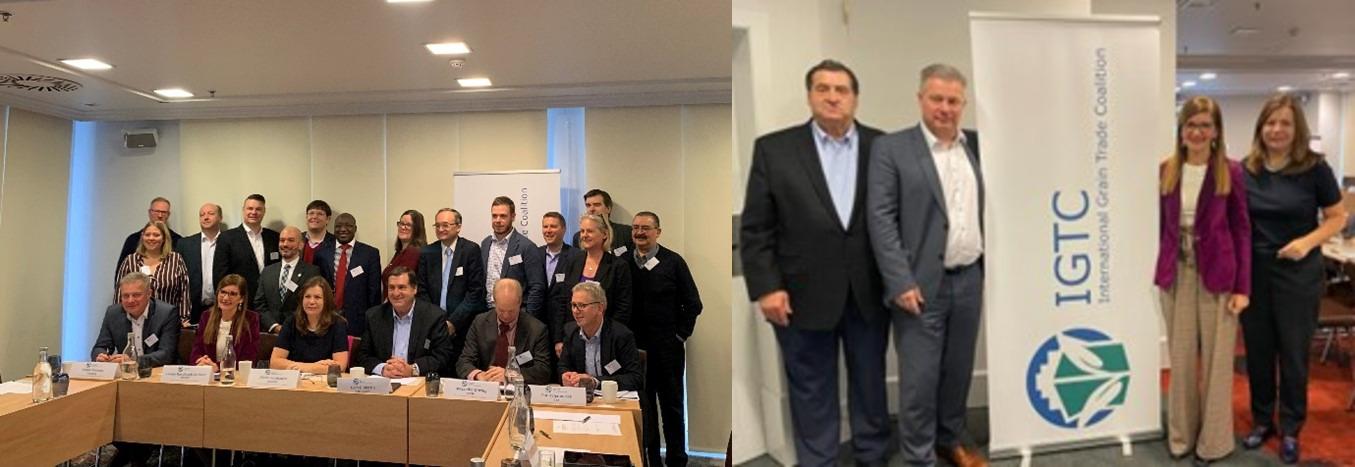Brussels, 29 November 2022

On the 29th of November, the International Grain Trade Coalition (IGTC) held its annual General Assembly in Brussels. The event brought together representatives of grain trade association from different regions of the world as well as port terminals’ and supply chain’s stakeholders.
Ms. Lamia Kerdjoudj, Secretary General of FEPORT, and Mr. Frank Peeters, President of the European Association of Silos for Agribulk Commodities, discussed the current and upcoming challenges as well as EU policy developments, and how global events such as the pandemic or the Russian invasion in Ukraine have exacerbated the global supply chain disturbances.
Through her intervention, FEPORT secretary General, Ms. Kerdjoudj explained why last April 2022, FEPORT sounded the alarm on the problematic cascading effects of the lockdown in Shanghai. The COVID-19 related crisis already put a lot of pressure on the maritime logistics chain but it has also revealed that while the causes of congestion for instance often relate to bottlenecks located upstream or downstream terminals, ports are often the locations where all inefficiencies of the maritime logistics chain appear. The issue of ‘global supply chain disturbances is a ‘multi-headed monster’ that has been growing long before COVID 19, the Ever-Given incident, the Ukraine war, or the Shanghai lockdown. However, with inflation and the energy crisis acting as a magnifying mirror of all costly inefficiencies, it is crucial to find solutions.
Modes and nodes like ports need to be increasingly connected to all modes of transport so that friction costs associated with changing between different modes of transport are as low as possible. This is now urgent and should be a priority in the EU.
Seaport terminal operators are constantly investing and innovating. Some of them are offering multimodal solutions that makes it easier to build in redundancies in case of congestion, low or high water, incidents, and so on, while also allowing them to expand the geographical scope of their activities.
On the other hand, Mr. Peeters addressed Unistock’s main goal, which is supporting the growth of professional storekeepers for agribulk commodities within EU, focusing its action on five selected areas of interest (i.e., labour and safety, food and feed safety, sustainability and climate action, upstream and downstream transport logistics, digitalisation).
A round table discussion followed the presentations and allowed participants to identify potential common actions to support trade and face the current challenges.













